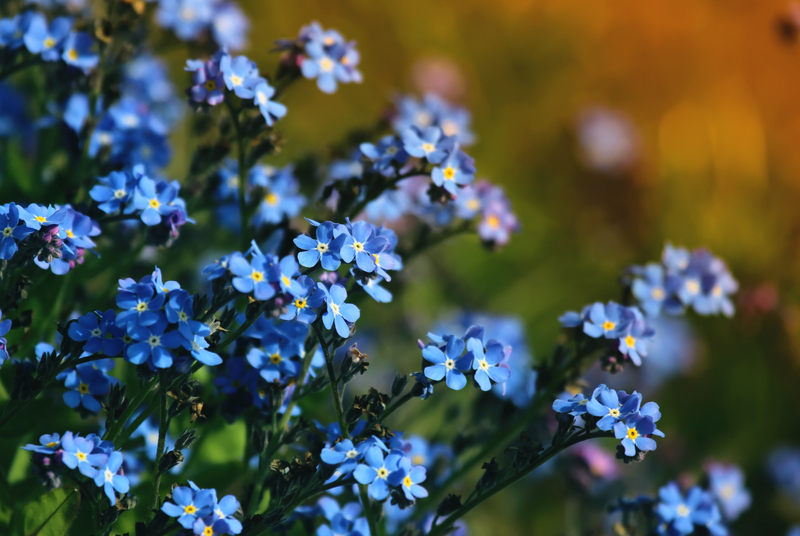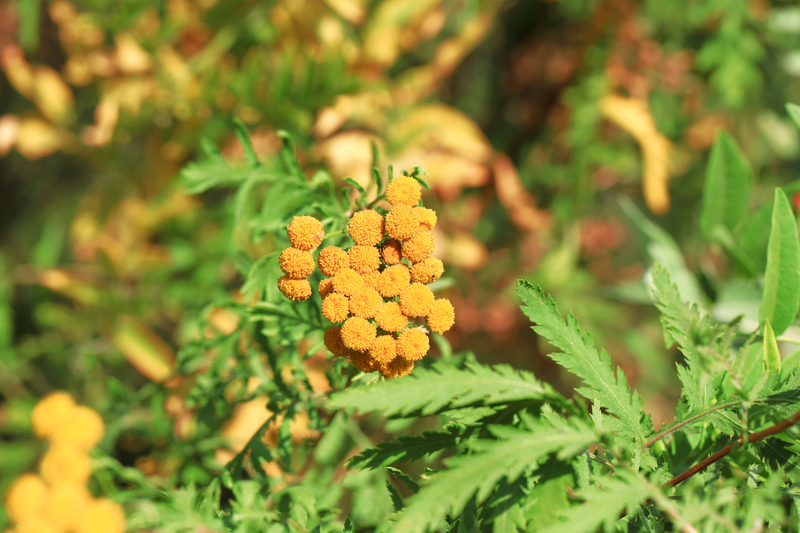Initialize Your Garden Journey: 9 Tips for Novice Gardeners
Posted on 27/05/2025
Initialize Your Garden Journey: 9 Tips for Novice Gardeners
Are you ready to take the first step in your gardening adventure? Starting a home garden can be both exciting and a little intimidating, especially for beginners. Whether you have a sprawling backyard or just a small balcony, cultivating your own green space can yield beautiful blooms, fresh vegetables, and a peaceful retreat right outside your door. In this comprehensive guide, we'll break down practical advice and effective strategies to initialize your garden journey with confidence. Discover the essentials to make your green dreams flourish!

1. Assess Your Garden Space and Conditions
Before you plant your very first seed, it's important to understand your garden area. Take a closer look at your available space, whether it's a plot in your yard, raised beds, or container garden on a balcony.
Key Considerations for Your Space:
- Sunlight Exposure: Most vegetables and flowers require at least 6-8 hours of sunlight per day. Observe your intended spot at different times of the day to gauge sunlight patterns.
- Soil Quality: Good soil is the foundation of a thriving garden. Conduct a simple soil test to check pH and nutrient content. You can improve your soil with compost or organic matter if needed.
- Water Access: Make sure your garden location is close to a water source. Consistent watering is crucial, especially for seedlings and young plants.
- Climate and Microclimates: Consider your local USDA hardiness zone and any unique microclimates in your yard--areas shielded by trees, fences, or buildings.
2. Choose the Right Plants for Beginners
Selecting easy-to-grow plants is crucial when you initialize your gardening journey. Go for varieties that are known for resilience and adaptability to increase your chances of success.
Best Plants for Novice Gardeners:
- Leafy greens like lettuce, spinach, and kale
- Herbs such as basil, mint, and parsley
- Root vegetables like radishes, carrots, and beets
- Sunflowers and marigolds for vibrant, low-maintenance flowers
- Succulents for apartment or indoor gardeners
Always check plant tags or seed packets for information on sun, water, and spacing needs. Native plants are also an excellent option, as they are well-suited to your local environment and often require less maintenance.
3. Invest in Essential Gardening Tools
When you start your garden, having the right tools will make your experience much smoother and enjoyable. Beginner gardeners don't need every tool on the market; a few essentials will suffice.
Gardening Tools You Need:
- Hand trowel: For digging, planting, and transplanting.
- Pruning shears: Ideal for cutting stems and harvesting.
- Gardening gloves: Protect your hands from thorns, dirt, and blisters.
- Watering can or garden hose: For precise and easy watering.
- Rake and hoe: For soil preparation and cleanup.
*Tip*: Keep your tools clean and dry to extend their lifespan and prevent the spread of plant diseases.
4. Plan Your Garden Layout Thoughtfully
Careful planning can set the stage for a lush, productive garden. Decide on a layout that accommodates each plant's needs. Consider companion planting, which pairs plants together to enhance growth, repel pests, or maximize space.
Effective Layout Tips:
- Start Small: Avoid getting overwhelmed by beginning with a manageable plot or a handful of containers.
- Group by Water & Sun Needs: Place plants with similar requirements near each other for easier maintenance.
- Leave Pathways: Designate enough space to walk between plantings for care and harvesting.
- Stagger Planting: Plant taller crops at the north or east end so they don't shade shorter plants.
An efficient design ensures your first gardening experience will be productive and easier to manage.
5. Feed and Care for Your Soil
Nourished soil is essential for healthy plants. When you initialize your garden, focus on building fertile ground to support robust growth throughout the season.
Soil Enhancement Tips:
- Add Compost: Incorporate organic compost to enrich soil structure and nutrient content.
- Avoid Over-Tilling: Excessive digging can disrupt beneficial microorganisms. Loosen the soil just enough to plant.
- Mulching: A layer of mulch helps retain moisture, suppress weeds, and moderate soil temperature.
- Rotate Crops: Change plant locations annually to prevent soil depletion and reduce pest buildup.
Remember, healthy soil creates healthy plants--never underestimate its importance!
6. Water Wisely and Consistently
Proper watering is one of the most vital steps when you start your garden journey. New gardeners often overwater or underwater, leading to stressed plants.
Watering Guidelines:
- Deep, Infrequent Watering: Saturate the root zone rather than giving plants light, daily sprinkles.
- Water Early: Irrigate in the morning so foliage dries by afternoon, reducing disease risk.
- Check Soil Moisture: Insert your finger into the soil. If it feels dry below the surface, it's time to water.
- Adapt for Containers: Potted plants often need more frequent watering than those in the ground.
*Bonus Tip*: Mulching not only enriches soil but also minimizes evaporation, helping keep roots consistently moist.
7. Monitor for Pests and Diseases
A proactive approach to pests and plant diseases can save a lot of frustration down the road. As you initialize your gardening experience, learn to recognize common issues early.
Simple Steps for Healthy Plants:
- Inspect Regularly: Examine under leaves, stems, and soil for signs of pests and discoloration.
- Encourage Beneficial Insects: Ladybugs and lacewings help control aphids and other small pests.
- Avoid Overcrowding: Airflow between plants prevents fungal diseases.
- Use Natural Remedies: Neem oil, insecticidal soap, or homemade garlic spray can handle minor infestations.
Don't panic if you spot a few bugs--many are harmless or even helpful! Focus on balance rather than elimination.
8. Track Your Progress and Record Success
Documenting your journey is one of the most rewarding aspects of starting a garden. Keep a gardening journal--digital or traditional--to record your planting dates, varieties, and any observations.
Benefits of Journaling:
- Learn from Experience: Tracking successes and challenges helps improve each future season.
- Identify Patterns: Recognize what grows best in your microclimate or soil.
- Celebrate Achievements: Watching your garden evolve is both motivating and a source of pride.
Many veteran gardeners underline the importance of documentation. Over time, your notes will become a treasure trove of practical wisdom!
9. Connect with Fellow Gardeners and Keep Learning
Gardening is a lifelong journey filled with constant discovery. As a beginner, don't hesitate to reach out to local gardening clubs, community gardens, online forums, or nearby nurseries.
Ways to Grow Your Knowledge:
- Join workshops or classes for hands-on learning.
- Participate in seed swaps to diversify your garden and meet fellow enthusiasts.
- Follow reputable blogs, podcasts, and YouTube channels to stay inspired.
- Ask questions! Most gardeners love to share tips and advice with newcomers.
*Lifelong learning is at the core of a thriving garden.* No matter where you are on your garden journey, there's always something new to discover and try.

Conclusion: Plant the Seeds for a Successful Garden Journey
Embarking on your first garden adventure is a rewarding blend of patience, curiosity, and hands-on effort. By following these 9 tips for novice gardeners, you'll be well-equipped to set healthy roots for your gardening journey. Remember to start small, observe nature, and enjoy every step--from planting seeds to harvesting your first crops or admiring vibrant blooms.
Ready to initialize your garden journey? Gather your tools, pick your plants, and watch as your outdoor space transforms into a lively sanctuary teeming with life. Happy gardening!
Frequently Asked Questions for Beginner Gardeners
Q: What is the easiest vegetable for a beginner gardener to grow?
A: Radishes, lettuce, and green beans are particularly easy and quick to grow from seed, making them ideal choices for first-timers.
Q: How much time per week should I dedicate to my garden as a novice?
A: Starting out, plan to spend 15-30 minutes daily checking on your plants, watering, and performing simple tasks. As your garden matures, some days require less maintenance.
Q: What common mistakes should new gardeners avoid?
- Overwatering or underwatering plants
- Skipping soil preparation
- Planting too many varieties at once
- Ignoring plant spacing recommendations
With patience, the proper foundation, and a willingness to learn, you'll be well on your way to a flourishing garden. Enjoy every step of your gardening journey!
Latest Posts
Gardening with Dogs: Sustainable Practices
Rediscovering Your Green Space: Starting a Garden Revival
Peaceful Outdoor Spaces: Zen Garden Concepts to Inspire

